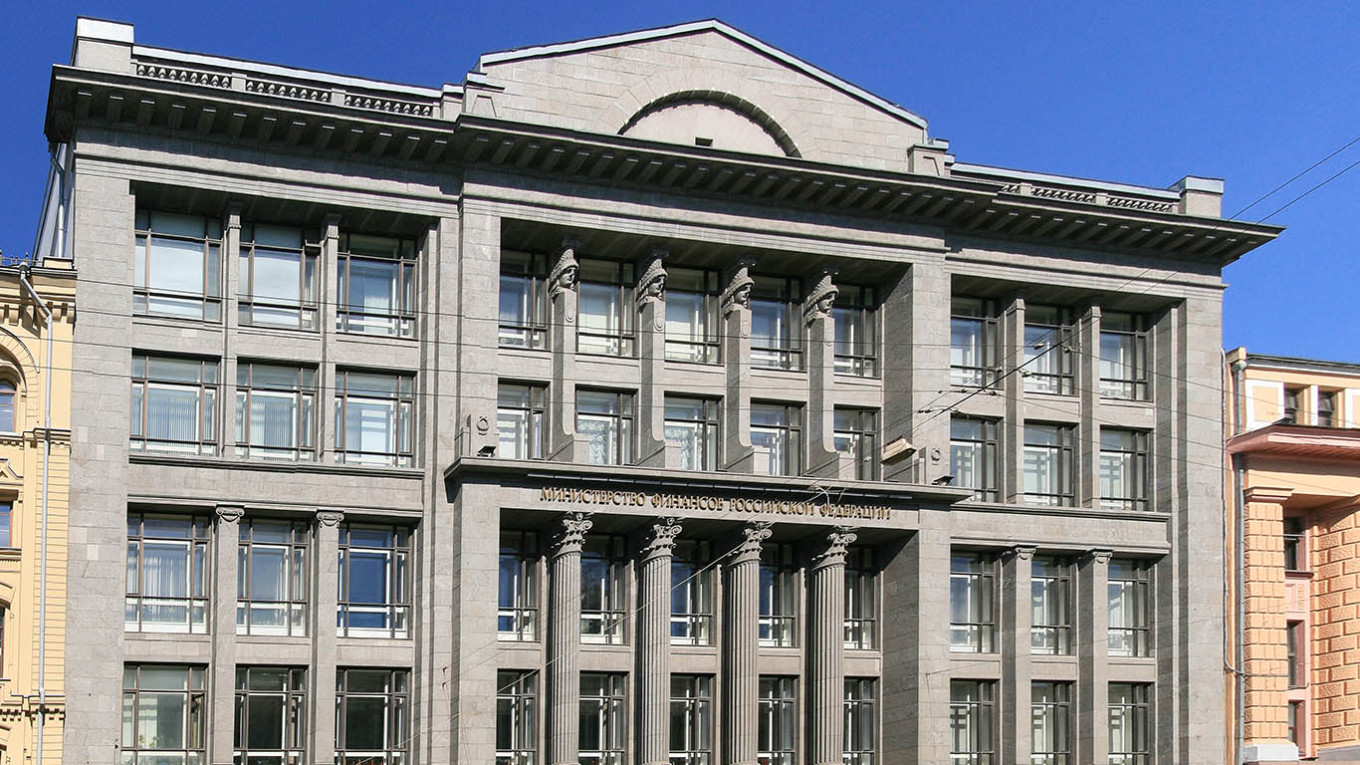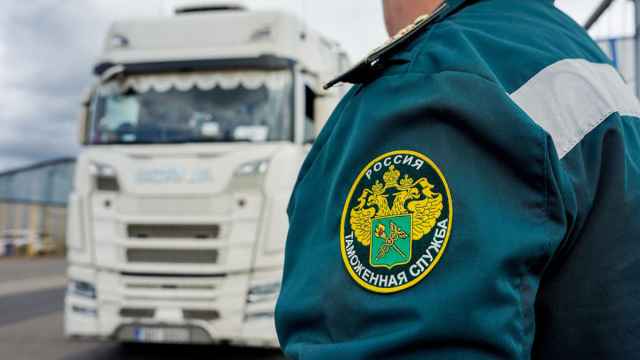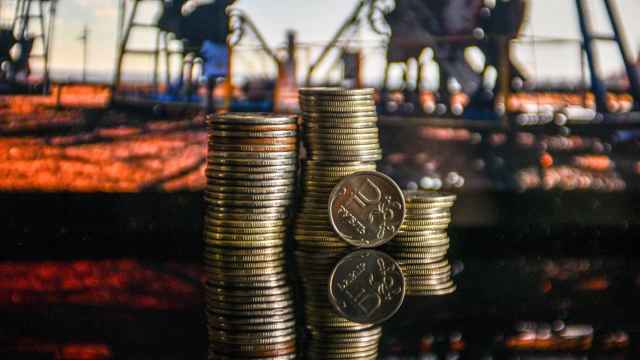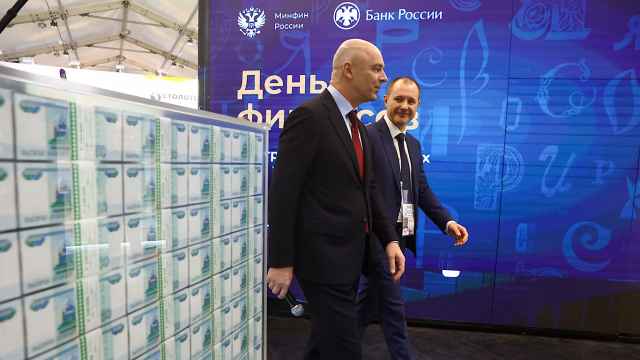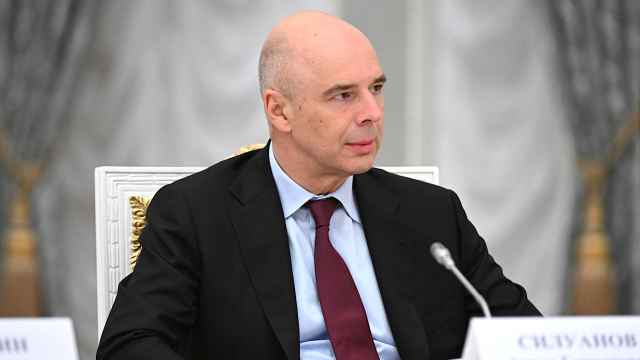Russia’s Finance Ministry on Wednesday proposed raising the country’s value-added tax (VAT) from 20% to 22% starting next year, as part of a new three-year budget plan aimed at covering surging defense and security spending.
The increase would generate an estimated 1.3 trillion rubles ($15.5 billion) in revenues annually, according to the business newspaper Kommersant, which published, then later deleted, a Finance Ministry forecast showing Russia’s GDP growth slowing to 1% this year, down from an earlier 2.5% estimate. For 2026, policymakers now anticipate economic growth of just 0.5%, far below previous projections of 3%.
Russia’s Finance Ministry is seeking to reassure consumers, who are likely to feel the strain of a VAT increase in the short term, that the impact on prices will be “moderate and limited.” In a statement on Wednesday, the ministry said a reduced 10% VAT rate will remain in place for essential goods like bread, dairy, meat, medicines and children’s products.
The proposed tax hike comes as the federal budget deficit reached 4.88 trillion rubles ($61.1 billion) between January and July, already exceeding the government’s full-year target. Weaker global oil prices, a stronger ruble and high interest rates have sapped growth this year, forcing the government to find ways to make up for the lost revenues.
Another part of the new budget proposal announced on Wednesday seeks to sharply lower the VAT threshold for small and medium-sized businesses using Russia’s simplified tax system, cutting it to 10 million rubles ($120,000) from the current 60 million. Officials say the change is meant to curb “fragmentation” schemes in which businesses split operations to avoid higher taxes.
VAT, Russia’s largest source of tax revenue, is expected to account for 40% of all government revenue this year. If enacted, the new measures would mark the second major tax increase in a year, after a reform earlier in 2025 that introduced a progressive tax system and raised corporate contributions to the state budget.
A consumption tax hike could possibly raise inflation since it directly increases the prices of goods and services. Russia’s Central Bank told Interfax on Wednesday that it believes the impact of a VAT increase would be “neutral for the dynamics of underlying inflation.”
Central Bank officials had previously said that the last 2% VAT hike in 2019 contributed 0.6 percentage points to that year’s inflation.
Yet T-Investments chief economist Sofia Donets said the overall impact of the Finance Ministry’s proposed VAT rate increase could be inflation of around 1.5% in the first months of next year, as companies adjust prices to maintain their margins and pass costs on to consumers in advance.
“By our standards, we’re used to higher numbers, so 1.5% doesn’t seem dramatic, especially considering that the VAT effect is initially passed through into prices,” Donets said. “Then, because it reduces consumers’ purchasing power, we expect that from the second quarter [of 2026] onward it will have a disinflationary, dampening effect.”
“Raising revenues to finance the deficit is, in effect, reducing the deficit. All of this points to a cooler economy next year, which should help achieve lower inflation and lower interest rates,” she added.
Russia’s annual inflation stood at 8.2% in early September, more than double the Central Bank’s 4% target. Policymakers said this month that they expect inflation to ease to 6-7% by the end of 2025 and return to the target next year.
President Vladimir Putin had previously assured Russians that there would be no further tax increases before 2030. As recently as June, Finance Minister Anton Siluanov said the government had no plans for revisions.
Putin has dismissed concerns that record defense spending is putting a strain on Russia’s economy, despite falling energy revenues and a ballooning budget deficit. He has instead argued that greater military outlays offer an opportunity to integrate defense and civilian production.
Russia’s government is reportedly scheduled to review the Finance Ministry’s three-year budget plan and amendments to the tax code on Wednesday, after which the lower-house State Duma will review the proposals next Monday.
A Message from The Moscow Times:
Dear readers,
We are facing unprecedented challenges. Russia's Prosecutor General's Office has designated The Moscow Times as an "undesirable" organization, criminalizing our work and putting our staff at risk of prosecution. This follows our earlier unjust labeling as a "foreign agent."
These actions are direct attempts to silence independent journalism in Russia. The authorities claim our work "discredits the decisions of the Russian leadership." We see things differently: we strive to provide accurate, unbiased reporting on Russia.
We, the journalists of The Moscow Times, refuse to be silenced. But to continue our work, we need your help.
Your support, no matter how small, makes a world of difference. If you can, please support us monthly starting from just $2. It's quick to set up, and every contribution makes a significant impact.
By supporting The Moscow Times, you're defending open, independent journalism in the face of repression. Thank you for standing with us.
Remind me later.


